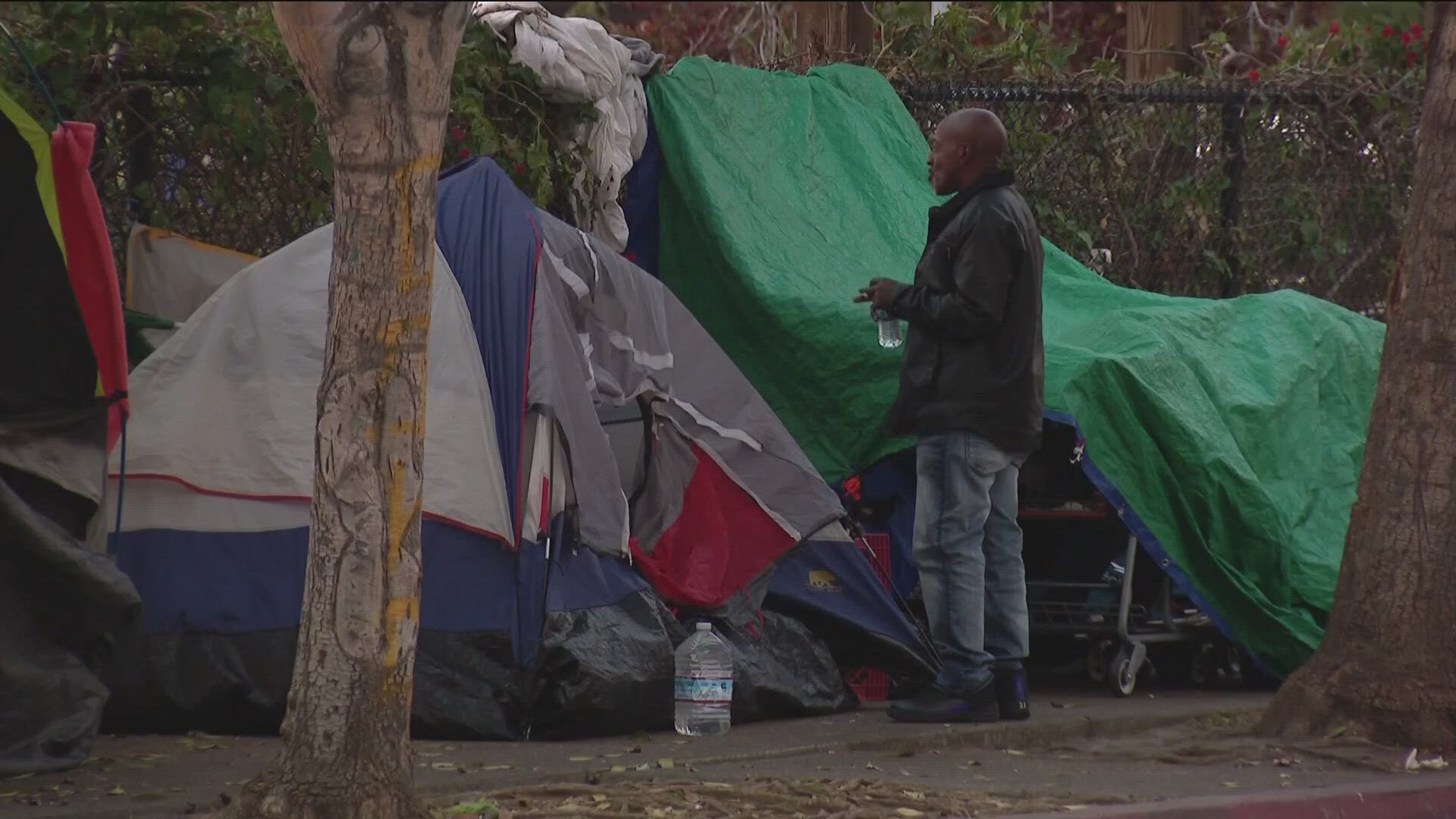SAN DIEGO — A proposed mobile platform could place homeless people in a shelter with a click of an app.
On Tuesday, San Diego County District Attorney Summer Stephan proposed a unique homeless outreach plan to the County Board of Supervisors.
Stephan wants to use tech to help people experiencing homelessness find shelter beds more easily and efficiently.
The San Diego Regional Task Force on Homelessness says in 2022, the most recent Point-In-Time count, there were 4,106 people who are unsheltered in all corners of the county.
“To me, this is both a humanitarian and a public safety crisis. And with that, what we need are new solutions,” said Stephan.
Stephan says one of those solutions to help people experiencing homelessness strive, is creating a first-of-its-kind countywide shelter bed mobile network app for those who come in contact with the unsheltered.
Social service workers, homeless providers, law enforcement, fire, EMTS and hospitals will have access to the app. Stephan stays eventually kiosks will be available for individuals.
“You're going to know exactly within moments. Is there a shelter available? And is this shelter suitable for the person that's on the streets?” said Stephan.
The proposal is an expansion of her project called Safe Shelter Collaborative, which launched during the pandemic.
Stephan says victims of domestic violence and human trafficking can find a bed in eight minutes instead of ten days.
Supporters say think of the tech like certain travel websites or hotel booking sites, where you can filter the needs of the individual and book a bed on the spot.
“Can I bring my companion animal? If I'm with a partner or a child, can they be with me? Am I going to just feel safe there? Is it close to where my family is? My network of humans are?” said Marnie Webb, Caravan Studios CEO, Chief Community Impact Officer for Techsoup, the product development division.
Her team created the Safe Shelter Collaborative and is now working on a new app. The Castle Park High School alumnus says the platform will cost $300,000 to develop. The app, says Webb, is about transparency, equity, and efficiency.
“I would add dignity as well. How do we make the information about the shelters visible to the people that you know, need them, so that they have some choice to and where they're going, and they can make sure it fits them,” said Webb.
Last fall dozens of stakeholders brought their ideas to the table including homeless service provider, the Lucky Duck Foundation.
“Instead of picking up the phone and calling 20 different shelters until you find a bed,” said Drew Moser, Lucky Duck Foundation Executive Director. “Someone in our group described it as pulling into a parking structure, you know exactly how many parking spots are available, that currently doesn't exist with the shelter system, which is arguably our region's number one crisis.”
There are skeptics. Michael McConnell has been a longtime critic of how homelessness is addressed in the area.
He likes how the tech will track data on an individual's needs but worries since there's a shortage of beds this might miss the mark.
“I’m not totally against it,” said McConnell. “At the end of the day if they are not going to create spaces for people to go this is just another tool that will sit on the shelf and not help people get off the street.”
Stephan hopes this will move the growing number of homeless victims and offenders out of the justice system and onto a path of success.
“We would never claim this is going to solve everything. But we do believe this is an innovative new solution that is going to thread and help uplift all the other solutions and make them work more efficiently,” said Stephan.
If approved, the district attorney plans to launch the mobile shelter bed app in six months.

